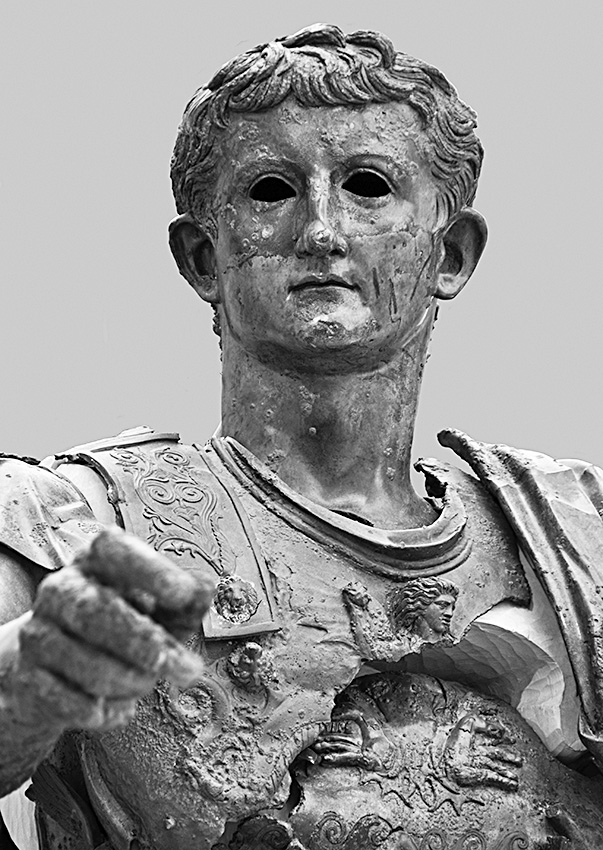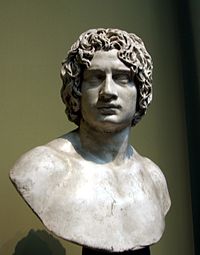- Dramma per musica in 3 acts
- Composer: Nicola Porpora
- Libretto: Nicola Coluzzi
- First performed: Teatro Capricana, Rome, 11 February 1732
| GERMANICO, Leader of the Roman army | Castrato | Domenico Annibali |
| ARMINIO, German prince, enemy of the Romans | Castrato | Gaetano Majorano “Caffarelli” |
| ROSMONDA, His wife, daughter of Segeste, enemy of the Romans | Angelo Maria Monticelli | |
| CECINA, Roman captain | Agostino Fontana | |
| ERSINDA, Segeste’s other daughter, Roman citizeness | Felice Salinbeni | |
| SEGESTE, German prince, Roman citizen | Felice Checacci | |
| Arminio and Rosmonda’s son | Silent |
SETTING: Cheruscide, capital of the Cherusci, and its environs

Nicola Porpora was a master of writing for the human voice. In his day, he was one of Italy’s foremost singing teachers; his pupils at the Conservatorio di Sant’Onofrio, Naples, included the castrati Farinelli and Caffarelli (who studied a single page of exercises for six years).
His operas, premiered in both Italy and Vienna, made him famous throughout Europe. When looking for a rival to Handel in the 1730s, the British aristocracy chose Porpora; the success of the Operas for the Nobility was short-lived, and the Italian left London after Handel‘s Atalanta (1736). As an old man in Vienna, Porpora taught singing and composition to his valet, one Joseph Haydn. Sadly, audiences lost their taste for Porpora’s virtuosic style (his last work, Il trionfo di Camilla, failed in 1760), and he died in poverty.
Posterity marked Porpora down as a vocal sensualist. “As befitted a famous singing-teacher,” Warrack & West (The Oxford Dictionary of Opera, 1997) write, “he displayed a consummate ability to write elegant melodic lines displaying the singer’s abilities to best effect. But the emphasis on vocal virtuosity, excessive even by the standards of the day, hindered dramatic articulation. Though more talented than many of his contemporaries, Porpora was no match for Handel, beside whom his style is stilted and lacking in dramatic intensity. Even during his lifetime criticisms were leveled that his music was too florid and ornamented; and his works, though not his reputation, soon passed from the repertoire.”
With the rise of the countertenor, Porpora’s works are being rediscovered. Max Emanuel Cenčić, Franco Fagioli, and Philippe Jaroussky have recorded albums of Porpora arias. (Cenčić calls his vocal writing an “almost sadistic” challenge.) They’re sublimely beautiful.
Germanico in Germania, released last year (Decca), is one of few Porpora operas recorded. The project was led by Cenčić, who sings the secondo uomo role of the Roman general. Like Vinci‘s Catone in Utica and Artaserse, Germanico premiered in Rome, where women were banned from the stage; it featured an all-male cast, with castrati singing female roles, and Farinelli in the lead as the German chieftain Arminio. The Decca recording, for some reason, uses mezzi and soprani.


Germanicus (nephew of Tiberius, father of Caligula, brother of Claudius) is at war with Arminius, to avenge Publius Quinctilius Varus’s death and the loss of three legions in the Battle of the Teutoberg Forest (9 AD). (“WHERE ARE MY EAGLES?”) Germanicus defeats Arminius in battle, and offers him the choice between Rome’s friendship and death; Arminius opts for the latter, and is led off to execution. He is reprieved at the last moment after a tender scene with his son (a budding psychopath who wants to lead thousands of men into battle, and likes playing with spears, helmets, and blood). All look forward to seeing Germania and Rome united in a bond of friendship and peace.

In actual history: Germanicus recaptured two of the legions’ lost Eagles, but Tiberius recalled him to Rome before he could find the third. He died in Syria a few years later (AD 19), probably poisoned. Arminius was assassinated by Germanic nobles in AD 21. Modern historians consider the Teutoberg Forest massacre, Augustus and Tiberius’ decision to withdraw, and Rome’s failure to civilise the Germans (as they had done the Gauls), one of the empire’s worst catastrophes.
The plot is thin, but the music is wonderful; it was designed to show off the singers’ virtuosity, with plenty of bravura arias. It’s tuneful, thrilling, and often meltingly beautiful. My first impressions, I admit, were not great; I listened to it on (rather tinny) headphones, and thought it lacked the inspiration of Vinci or even Handel. A good sound system makes a huge difference. I listened to it a month later (off the back of Handel’s Arminio, a sort of prequel), playing on my car stereo while driving around northern New South Wales. There’s nothing quite like charging down the highway in an explosion of countertenor coloratura!
The most beautiful piece in the opera is Arminio’s farewell to his wife, “Parto, ti lascio, o cara”, one of Porpora’s lovely long, slow arias. The first act has Germanico’s rage aria “Qual turbine, che scende”, something of a countertenor warhorse; and Arminio’s wife Rosmonda’s “Son qual misero naviglio”, comparing herself to a storm-tossed ship. A virtuoso trio, “Temi lo sdegno mio, perfido traditore” ends the second act, while Arminio and Rosmonda have an attractive farewell duet, “Se viver non poss’io”, in Act III. For coloratura fireworks, listen to Rosmonda’s “Rivolgi a me la ciglia” (I) and “Il padre mi sgrida” (II); Segeste’s “Nocchier, che mai non vide l’orror della tempesta” (I) and “Scoglio alpestre in mezzo all’onde” (II); and Ersinda’s “Veder vicino” (II). Germanico’s captain Cecina has two gentle arias: “Se dopo ria procella” and “Serbami la tua fede”.
For all lovers of opera seria, this is a must.
3 thoughts on “127. Germanico in Germania (Porpora)”